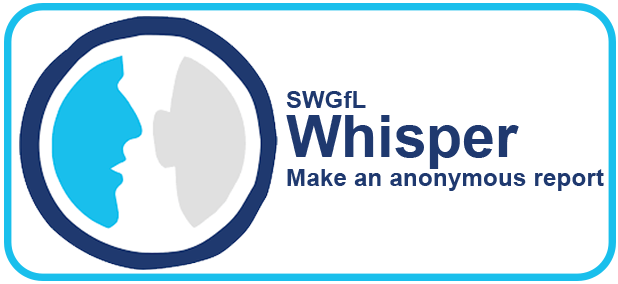English
Department Intent
The three E’s of English: Empathise, Examine, Express
| Knowledge in English |
In English, our pupils develop an understanding of writing as a craft and their knowledge of how words can influence others. They are challenged to use evidence to justify their personal responses to the texts they study, and are given the tools needed to understand, infer, explain, examine, analyse, compare, and communicate clearly, effectively and imaginatively. By learning about texts from different time periods, genres and voices, our pupils are exposed to a world outside of their local context and are able to learn about the experiences of other people. |
| Curriculum in English |
At Lea Manor High School, the English curriculum aims to develop a love of literature that follows our pupils throughout life, exposing them to the human experience, and encouraging them to become authors, poets, playwrights, and journalists.
Through our concept-based curriculum, pupils explore texts that delve into key themes and motifs within English, for example love, identity, morality, gender, conflict and power. Each unit builds towards a wider understanding of Literature, where pupils will be able to make compelling links between the texts they have studied.
|
| Teaching and Learning in English |
Each unit in the English curriculum will provide opportunities for pupils to work independently, with their critical friend, and with a wider group. Retrieval of prior knowledge is essential to the teaching and learning within the department and pupils are encouraged to make connections between topics and subjects through the use of interleaved and spaced recall tasks.
Teaching will build upon pupils’ storage of key knowledge in the long-term memory, with lesson activities to focus their thinking on the overall learning goals. Lessons will include a range of activities, with reading, discussing, annotating and writing being used to develop their knowledge, critical thinking and skill set. Through the use of modelling and scaffolding, we ensure that our pupils are confident in their ability to write both academically and creatively, and are able to express their thoughts in an articulate and well-evidenced manner. This also underpins the role of Speaking and Listening within the subject, as pupils are guided into becoming eloquent and confident speakers.
Pupils will also have the opportunity to develop their literacy further, and there is a strong focus on developing a secure understanding of how to craft sentences for different effects. This is an essential part of preparing them for the wider world, as we challenge our pupils to improve their ability to communicate effectively, and the department ensures that key vocabulary (including subject terminology) is embedded throughout the units.
|
| Assessment in English |
Assessment in English is consistent, coherent, integrated seamlessly into the curriculum and is a valuable activity in its own right. Over the course of each scheme of learning, pupils will be given opportunities for different types of assessments and receive high quality, meaningful feedback. From low-stake quizzes that assess knowledge to extended writing responses that demonstrate what pupils have been studying, there are multiple chances for pupils to reflect on what they know and learn how to improve, securing their rapid progress. |
| Learning Beyond the Classroom in English |
The English curriculum underpins understanding in all other subjects, such as Drama, History, Geography, Religious Studies, Science and Art. Our pupils are encouraged to form connections and use their prior and wider knowledge to extend their understanding.
Subject-specific extra-curricular clubs offered include Current Affairs, Book Club and Debating, and this gives pupils the opportunity to develop their love of English outside of the lesson, working with their teachers to build the key skills for the subject and beyond.
Pupils are encouraged to read for pleasure and are directed towards challenging, but age-appropriate books that will develop their vocabulary and knowledge further.
|
Curriculum Journey
| Autumn 1 | Autumn 2 | Spring 1 | Spring 2 | Summer 1 | Summer 2 | |
| 7 | Writing Triplets | Pig-Heart Boy |
Pig-Heart Boy |
Descriptive and Narrative Writing | Introduction to Poetry - Diverse Voices | Introduction to Shakespeare |
| 8 | War and Conflict - White Poppies | War and Conflict - Poems and Non-Fiction | Introduction to Victorian Literature | Trailblazer Speeches | Twelfth Night | Twelfth Night |
| 9 | Gothic Literature and Jekyll and Hyde | Jekyll and Hyde | Julius Caesar | Julius Caesar and Rhetoric | Poems Throughout History | Writing for Intent and Effect |
| 10 |
Macbeth |
Macbeth and Writer’s Viewpoints and Perspectives |
A Christmas Carol |
ACC and Explorations in Creative Reading and Writing |
An Inspector Calls |
AIC and Spoken Language Endorsement |
| 11 |
Power and Conflict Poetry |
Unseen Poetry and Language Skills | Revisit knowledge and skills for Macbeth, ACC and Explorations in Creative Reading and Writing |
Revisit knowledge and skills for AIC, P&C and Writer's Viewpoints and Perspectives |
Revisiting Key Knowledge and Skills for English Language and English Literature GCSE Public Examinations | Revisiting Key Knowledge and Skills for English Language and English Literature GCSE Public Examinations |
Curriculum Overview
- 1 Year 7 English Curriculum Overview
- 2 Year 8 English Curriculum Overview
- 3 Year 9 English Curriculum Overview
- 4 Year 10 English Curriculum Overview
- 5 Year 11 English Curriculum Overview


